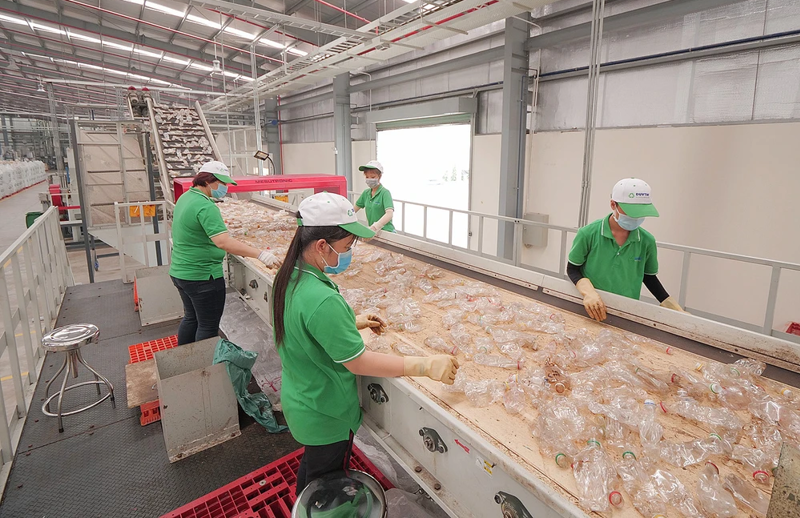Since the implementation of the Extended Producer Responsibility (EPR) policy, Vietnam's recycling industry has seen significant advancements, according to industry experts.
The policy, which came into effect on January 1, 2024, under the 2020 Law on Environmental Protection, mandates the recycling of products such as batteries, accumulators, lubricants, tires and tubes, and commercial packaging.
Experts claim that EPR is a significant milestone in waste management, providing a robust legal framework that helps businesses understand their responsibilities and encourages recycling activities, thereby promoting a circular economy. For exported products, the use of recycled materials at a certain percentage serves as a "green card" for entry into demanding markets.
At a recent roundtable discussion, Mr. Phan Tuan Hung, Director of the Legal Department (Ministry of Natural Resources and Environment) and Director of the National EPR Council Office, reported that manufacturers and importers have contributed financially to the Vietnam Environment Protection Fund since January 1, 2022. These funds, projected to reach VND1.5 trillion ($58.9 million) by the end of 2024, will support local governments in collecting and treating solid domestic waste and pesticide packaging.
"EPR creates a major opportunity for Vietnam's recycling industry by generating financial resources," said Mr. Hung. "Previously, recyclers only invested when there was a profit. But now, with additional resources from manufacturers and importers, they must invest in recycling."
In addition to EPR, the Ministry of Natural Resources and Environment is submitting regulations on green credit incentives for green projects, including recycling activities, which will be eligible for preferential loans. The Vietnam Environment Protection Fund also offers recycling projects loans at lower interest rates than banks. Many businesses have accessed this funding to expand recycling plant scales.
Mr. Le Anh, Director of Sustainable Development at Duy Tan Plastic Recycling Company, highlighted the increased attention to recycling and collection issues.
"In 2024, the collection volume increased by one and a half times compared to the previous year. Previously, there were only about three entities exploring recycling; now, there are nearly ten,” said Mr. Anh.
“In addition to FDI companies pioneering in collecting and recycling their products, many Vietnamese businesses have started to explore participation."









 Google translate
Google translate